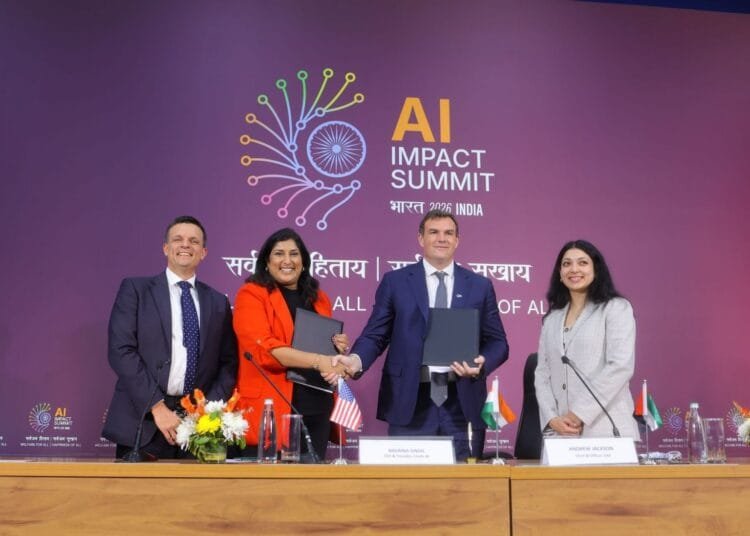India gains from DPDHL experiences
Technology is on the forefront of Deutsche Post DHL Group which operates across the globe, keeping to time-sensitive deadlines. The group’s recent technology is SmarTrucking.
Neeraj Bansal, CEO, DHL SmarTrucking, talks about the new trucking system which was launched in India in May 2018.
Q: What is DHL SmarTrucking?
Bansal: DHL SmarTrucking has a vision to provide customers with the most reliable and easy road transportation services through smart technology and highly committed people in an innovative and agile way.
DHL SmarTrucking is a road transport solution that leverages TechLog, or logistics made smarter through the use of new and emerging technologies. A SmarTruck utilizes Internet of Things (IoT) to monitor various aspects such as shipment temperature, vehicle fuel levels and driver behavior. This information is sent to the control tower, which, in turn, helps deliver the best reliable transportation solution for the customers.
Backed by leading-edge technology, a DHL-owned fleet and an innovative operating model, DHL SmarTrucking, offers simple, fast and reliable full truck load transportation across India, for all products across sectors, segment and value chains including cold chain products.
Q: How much research work has gone into building a SmarTruck?
Bansal: The Indian logistics sector is at a very interesting juncture right now. On one hand, there are some great initiatives that are creating immense growth potential in the sector, while on the other, constraints continue exist that are putting the brakes on this growth. The sector is highly unorganzised, with low on time reliability and high transit times. It also faces challenges due to low technology adoption and lack of skilled drivers.
The industry is also very fragmented with many small local players as well, but there is no single player in the market that has a strong national presence. Our aim is to offer the fastest transit times and highest reliability with ease of use, end-to-end consignment visibility, temperature-controlled capabilities and real-time tracking that beats industry standards.
Q: How much has DP DHL network grown in the last five years?
Bansal: DPDHL Group has been growing steadily over the past few years. We continually look at market demand and opportunities to bolster our network, services as well as offerings for our customers. The launch of DHL SmarTrucking is just one such example.
Q: What is the time frame of building a 10,000-truck fleet?
Bansal: Our goal is to give the Indian logistics sector a makeover through the innovative use of new and emerging technologies. With DHL SmarTrucking, we plan to build a fully-owned, 10,000-strong, IOT-enabled and temperature-controlled fleet and hire 20,000 to 25,000 drivers in the next 10 years.
Q: How would you link these trucks to IoTs?
Bansal: DHL SmarTrucking uses Internet of Things (IoT) to enable traceability, visibility and reliability of operations. This in turn makes the entire solution easy, secure, transparent, improves operational efficiency and service quality, reduces costs and optimizes resource utilization making it the most reliable solution for the customers.
DHL SmarTrucking leverages IoT technology and data-driven insights for route optimization. This reduces transit times by up to 50% compared to the traditional trucking industry, and provides over 95% on time reliability with ease of use, end-to-end consignment visibility, temperature-controlled capabilities and real-time tracking.
IoT-enabled sensors monitored through the company’s centralized control tower provide real-time temperature and consignment tracking. Information alerts and status updates are also sent to customers and DHL SmarTrucking’s operations teams through the customer portal and external and internal mobile applications.
Q: How much savings – time of delivery etc – will be made by the use of SmarTruck?
Bansal: DHL SmarTrucking offers 95% reliability for on-time delivery, real-time consignment tracking and up to 50% reduction in transit time compared to traditional trucking. DHL SmarTrucking’s fleet will cover an estimated 4,000,000 km pan-India and is expected to transport 100,000 tonnes of cargo every day.
Q: What are DP DHL projections on trucking its deliveries in the next 10 years?
Bansal: The trucking and logistics industry is continually evolving, and we will regularly invest in new technology and solutions, based on market demand, to meet the needs of our customers.
Q: Are there plans to use smart trucks in other markets?
Bansal: As a Group, DPDHL monitors each market closely, and will invest accordingly depending on market demand.
-/fiinews.com










